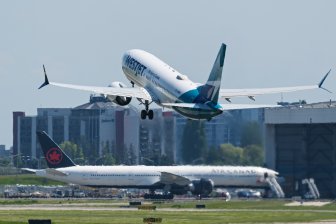Nova Scotia’s immigration support services need bolstering to meet the growing needs of a record number of newcomers to the province, says an internal review.

Because of a lack of resources, services for immigrants are being delayed as demand grows, says a report conducted for the Department of Labour, Skills and Immigration between June and October 2022.
“It is not uncommon to only have a singular settlement staff (member) who is responsible for running the entire program,” the report says. “This includes the intake, needs assessment, job search and planning and organizing community events.”
Information for the report was collected from 18 service providers and 220 immigrants who took part through a survey, while 12 newcomers agreed to in-depth interviews. The report, which was obtained from the department, says service providers have helped between 22,000 and 25,000 immigrants a year since 2020, up to 60-per-cent more people than expected over that period.
Nova Scotia has set a goal of doubling its population to two million by 2060 and has welcomed more than 40,000 people over the last decade. According to the department, a record 12,650 people came to the province last year.
The government is increasing immigration to fill labour shortages, especially in the skilled trades and in health care, said Jennifer L’Esperance, the department’s senior executive director for immigration and population growth.
“We have labour needs that we have to meet with newcomers,” L’Esperance said in an interview. “But if these people don’t want to stay once they get here then we’ve not done our jobs, so we need to make sure that there are settlement supports in place.”
She said the department has increased its funding over the last two years by $1.6 million for settlement service providers, bringing current annual funding to more than $8.6 million.
The province now funds 22 providers, up from 18, to address the report’s call for wider program coverage, L’Esperance said, adding that the length of funding agreements with those groups has risen to three years from two, an increase also called for in the report.
Brian Posavad, CEO of the YMCA of Greater Halifax and Dartmouth, said in an email that the increased funding has allowed his organization to expand services in rural communities that have seen the most growth in newcomers. The YMCA offers 70 in-person services in 11 communities across the province, assisting with local settlement, language instruction and school registration.
“Our growth has tripled since 2015, from supporting approximately 2,000 newcomers to 6,500 newcomers in 2022, Posavad said. “We are already ahead of our monthly targets for (program) participation by 25 to 30 per cent.”
He added that the extension of service contracts has provided the YMCA with more stability and allowed him to spend less time writing funding proposals and more time working in communities. Still, challenges remain in providing the breadth of support services required, Posavad said.
“The biggest challenge has been staffing to keep up with the quantity and complexity of demand and increasing the physical space for in-person programs,” he said.
The report highlights the need for more rural support services because of a growing trend of newcomers settling in less populated areas. At the time of its publication in 2022, it said 25 per cent of newcomers had settled in rural areas as compared to 16 per cent in 2018.
”We know that we need to cover the province more broadly because we are having more people settle outside of Halifax than ever before,” L’Esperance said.
According to the report’s survey, newcomers consistently cited employment opportunities, the availability of affordable housing, and the ability to integrate into communities as key to their willingness to stay in the province.
This report by The Canadian Press was first published Aug. 18, 2023.



Comments